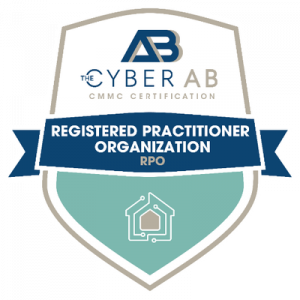
Most nonprofits don’t have the luxury of a massive IT budget.
You’re juggling grant deadlines, donor expectations, and your mission. Every dollar matters. But here’s the catch: cybercriminals know this.
That’s why nonprofits have become prime targets for phishing scams, ransomware attacks, and data breaches. And when every system outage or stolen record puts your credibility — and funding on the line, cybersecurity can’t be treated like a wishlist item.
So how do you plan for it?
Here’s how to build a cybersecurity budget that makes sense for a nonprofit.
1. Understand What You’re Protecting
Before you throw money at software or services, get clear on what’s at stake:
- Donor data
- Staff records
- Financial reports
- Program management tools
- Email systems
If you lose access to these for even a day, what would it cost your mission?
2. Start with the Basics
Not every nonprofit needs a six-figure security stack. But every organization needs to cover the basics:
- Firewall & Endpoint Protection
- Data Backups (cloud & local)
- Multifactor Authentication (MFA)
- Email Filtering & Spam Protection
- Security Awareness Training
This is your cybersecurity foundation. Skipping these is like locking your front door but leaving the windows open.
3. Look at Total Cost of Inaction
A phishing scam that locks your files for ransom? That can cost tens of thousands of dollars.
A data breach involving donor records? That could mean lawsuits, lost funding, and a reputation hit you can’t afford.
When budgeting, compare the cost of protection against the cost of recovery. Prevention is cheaper — every time.
4. Tap Into Free & Low-Cost Resources
There are many nonprofit-specific tools and grants to help:
- TechSoup offers discounted software and services
- CISA provides free training and threat alerts
- Your MSP (like I-M Technology) may offer nonprofit pricing, assessments, or bundled services
Don’t try to piece it all together on your own. Working with a trusted partner can stretch your budget further.
5. Plan for Growth, Not Just Survival
Cybersecurity isn’t a one-time line item. As your nonprofit grows, your risks evolve.
That means:
- Regular training refreshers for staff
- Upgrading old hardware before it becomes a liability
- Auditing software tools for vulnerabilities
- Budgeting for incident response and insurance
Think of cybersecurity as capacity-building — protecting the infrastructure that supports your programs, people, and impact.
Need Help Building a Smart Cybersecurity Budget?
At I-M Technology, LLC, we specialize in working with NonProfits across Southern New England. We know the budget pressures, the compliance requirements, and the mission-critical nature of your work.
Let’s talk about how to build a cybersecurity plan that fits your size, budget, and goals.
📅 Book a free discovery call today: https://i-m.tech/discoverycall



